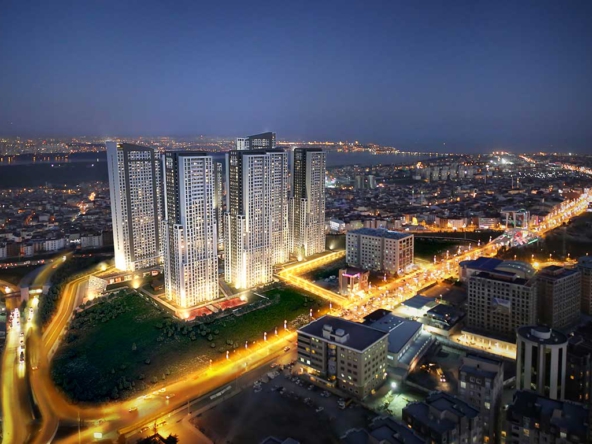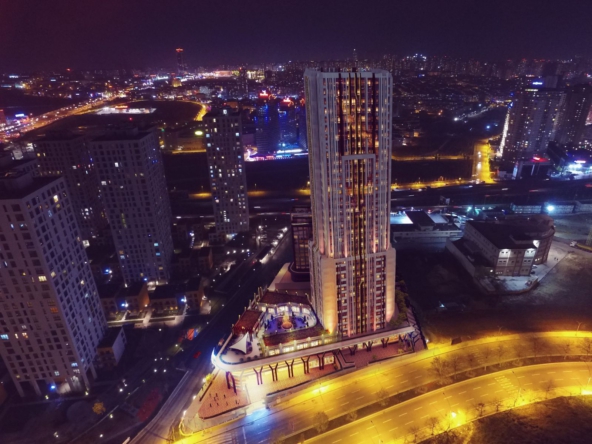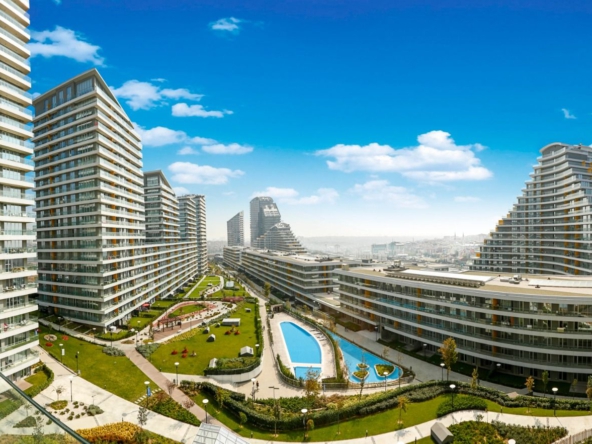Buyer Guide
- Buying Property in Turkey
- Why Invest In Property In Turkey
- How To Buy Property in Turkey
- Who Can Buy Property in Turkey?
- Costs of Purchasing a Property in Turkey
- Property Maintenance in Turkey, Fees & Costs
- Buying Property in Turkey Through A Company
- Power of Attorney in Turkey
- Finance For Property in Turkey
- Residency Permits in Turkey
- Work Permits in Turkey
- How To Set Up A Business in Turkey?
- Bringing Your Car Into Turkey
- Bringing Your Pets Into Turkey
- Capital Gains Tax On Sale Of Turkish Property
- Income Tax On Turkish Property
- Property Turkey Inspection Trips
Get Help Today
Why invest in property in Turkey
Turkey’s economy has gone from strength to strength and the country is now one of the world’s top emerging economies. Thanks to stable inflation rates, favorable lending rates, a high GDP and a young, property-hungry population, investor confidence is at an all time high. Istanbul real estate and Mediterranean property in Turkey is now some of the most sought-after in the northern hemisphere. Read more.
How to buy property in Turkey
Faced with growing numbers of overseas buyers, the Turkish government has recently taken steps to make the Turkish property buying process faster and easier. Although it’s easier than ever before to buy a home in Turkey, it’s best to be armed with the latest up-to-date information to guide you through the steps you’ll need to take to buy property in an unfamiliar country. Our step-by-step guide to buying real estate in Turkey lays out exactly what you’ll need to do to ensure your purchase goes without a hitch. Read more.
Who Can Buy Property in Turkey
Turkish real estate is now available to the citizens of more countries than ever before. Thanks to a game-changing amendment to legislation which lifted restrictions and increased the number of nationalities who can now buy homes in Turkey to 129. The relaxed laws have prompted an increase in overseas buyers of property. Read more.
Costs of buying property in Turkey
Stamp duty, solicitor fees, the agency fee and other miscellaneous costs can add up. We recommend you allow for an extra 8% on top of your property value. Please read the link for a breakdown of costs associated with purchasing Turkish real estate. Read more.
Managing & maintaining your new home in Turkey and associated fees
Now that you have happily bought your new home overseas, you need to know how to go about managing and maintaining it. A well managed property appreciates in value, whereas a poorly maintained property, like any other asset, will lose its value faster than you can imagine. Good news is that management & maintenance of holiday homes in Turkey is not expensive. You can appoint professional management companies that will provide necessary services from as low as Euro 600 per annum for apartments and.. Read more
Buying property in Turkey through a company
A number of people choose to buy a Turkish property through a foreign company due to certain advantages, while others take this route if they’re not from one of Turkey’s recognised reciprocal countries. Either way, if you choose to take this option you’ll need to carefully consider the steps you’ll need to take and the implications of operating a limited liability company in Turkey. Read our guide for more information. Read more.
Should I use a solicitor to buy property in Turkey
Most people who find themselves victims of property scams in Turkey could’ve avoided financial stress and ruin by simply hiring a solicitor. Employing a reputable solicitor not only saves you time and eases the way towards completing your property purchase, it helps you avoid the pitfalls many buyers fall into. Read our guide and discover the full advantages of hiring a solicitor in Turkey and how to find a reputable professional. Read more.
Power of Attorney in Turkey
In order to complete the property buying process from your home country, it will be necessary to grant your solicitor power of attorney. Your solicitor will act on your behalf, completing the necessary steps to complete your property purchase. Check our guide to find out exactly what your solicitor needs to gain power of attorney and what they can do for you. Read more.
Finance for property in Turkey
As long as you have a good credit history and a proof of income, financial help to buy property in Turkey is available for home buyers. With a minimum 30% deposit and meet the minimum criteria you’ll be eligible for finance provided by major European financial institutions. Read our guide to financing property in Turkey and then contact us to discover whether you’re eligible for finance. Read more.
Residency permits in Turkey
As part of the government’s bid to ease the buying process for overseas property buyers, Turkish home buyers are now granted an automatic year-long residence permit in Turkey. After your initial year is completed you can renew your permit and obtain a permit lasting as long as five years. The process to obtain a residency permit is relatively straightforward. Read our guide which lays out the process and requirements in terms of the necessary documentation you’ll need. Read more.
Work permits in Turkey
All foreigners must obtain a work permit if they wish to work in Turkey. Your company will need to sponsor your work permit, and it’s possible to get the ball rolling while you’re still at home. Read more to discover the process by which a work permit is obtained – as well as which jobs and professions are restricted for overseas workers. Read more.
How to set up a business in Turkey
Turkey is attracting large amounts of foreign investment and growing numbers of entrepreneurs are combining their Turkish home purchase with new business ventures. Setting up a business in a new country can be tricky and you’ll need to do your homework with respect to discovering how Turkish law, taxes and culture differ from your own. Read our guide to setting up a limited liability company and our tips for easing your transition to working in a new country. Read more.
Bringing your pets into Turkey
Bringing your beloved pet to Turkey is easier than you think. Providing Rex or Fluffy have had up-to-date vaccinations and a pet passport or identification card, you’ll find importing your cat or dog to Turkey a simple and painless process. Read our guide to find out more about the process of importing animals to Turkey, as well as a few handy tips on dealing with airlines and what equipment you’ll need. Read more.
Bringing your car into Turkey
Cars are considered a luxury item in Turkey and costs of vehicles, fuel and road tax can reach eye-watering proportions, costing around three times the amount you’re paying back home. Many overseas property buyers think they can drive their cars to Turkey from their home country for use in Turkey. However, this is generally not the case. Read our guide and weigh up the pros and cons of buying a car in Turkey or importing one from home. Read more.
Income tax on Turkish property
If you’re buying Turkish real estate you’ll need at least a working knowledge on Turkish income tax laws, and how they apply to you as a foreign buyer. If you’re setting up a business in Turkey or planning to earn rental income from your property it’s essential you have some understanding of tax law. Our guide explains the different categories of tax in Turkey and breaks down the laws pertaining to property income tax in easily digestible pieces. Read more.
Capital gains tax on sale of Turkish home
The capital gains tax is a tax you’ll incur if you sell your property within five years of the purchase date. You will be taxed on any profit you make after the sales value is declared. Read our guide to find out the ins and outs of this tax and whether there are any exemptions or clauses you need to be aware of before you sell your home. Read more.
Inspection Trips
A Turkish property inspection trip is a chance for you to not only find your dream home, but to discover if Turkey’s culture and way of life is suitable for you and your family. We’ll help you to explore the local area and introduce you to the best possible properties for your budget. Our insider knowledge and experience will assist us to give you up-to-date and accurate information on not only the area’s real estate, but the ins and outs of the local economy and lifestyle. Find out more about inspection trips here. Read more.
Clicking through to the pages, you will find relevant and up to date information on questions you might be asking yourself before deciding whether you want to buy a home in Turkey.
With the Turkish real estate market ever expanding and growing at an impressive rate, the amount of foreign nationals looking to purchase in Turkey today is more than ever before. Turkey’s star is rising, and rising fast. Time has never been better to invest in Turkey, and we are here to help you do just that in the safest and most feasible way possible.
Turkey – At the Crossroads of Europe and Asia
The Republic of Turkey, commonly referred to as Turkey (you can link to the official Tourism Portal of Turkey here), is a country situated at the edge of both Europe and Asia. This makes Turkey a land that is directly affected by the conflicts of its neighbors, of which there have many. In fact, Turkey is bordered by eight countries. Over the centuries, there have been various struggles, conquests, and changes of power, which have all shaped the nation into its current setting as a gateway between the Middle East, Asia, and Europe.
The Mighty Ottoman Empire Becomes the Republic of Turkey
Before Turkey became a republic, the land was ruled by the Ottoman Empire. The Ottoman state was formed in 1299 after Osman Bey united many of the Turkish tribes. It wasn’t until the conquest of Constantinople in 1453 that the Ottoman state truly became an empire. From that point, up until 1683, the Ottoman Empire continued to grow, through a series of conquests and invasions of other territories and tribes. During the peak of the Ottoman Empire’s control of the region, the area ruled by the empire included a population of over 15,000,000.
The start of the 18th century saw the beginning of a series of wars that would eventually lead to the downfall of the Ottoman Empire. From 1700 to 1878, there were dozens of battles and several large scale wars fought between the Ottoman Empire and the Russians. This would cripple the hold that the Ottoman Empire had on many of its territories.
World War I saw the official end of the Ottoman Empire and the transition to the Republic of Turkey. One of the founders of this new movement was Mustafa Kemal Ataturk. Ataturk was an Ottoman and Turkish army officer that led the Turkish National Movement during what is considered the Turkish War of Independence. After his victory, Ataturk began transitioning the Ottoman Empire into a European Nation-State. This was done through the opening of new schools, initiating government reform programs, and by lowering taxes. The emergence of this new type of government in Turkey was the start of its growth into a modernised European nation.
From Early Republic to Modern Power
After becoming a Republic, it took some time for Turkey to evolve into the modern power that it is today. The early steps taken by Ataturk to guide Turkey towards a more secular government were the stepping stones that needed to be placed. This also helped the growth of population in Turkey. In 1927, the population had been just 13 million. By 1950, the population had reached 20 million. This kind of explosive growth was not seen by other countries that were involved in World War I and II and demonstrated the security and national pride felt by most Turks.
In 1945, at the end of World War II, Turkey became a member of the United Nations. This helped them become a part of the Marshall Plan, which was written to aid in the rebuilding of Europe after World War II.
As a member of the United Nations, Turkey took part in the Korean War, after which, they joined NATO. Being directly involved in the conflicts of allies and other countries was instrumental in Turkey’s remaining a prominent country during the second half of the 20th century. This prominence can be noted by again looking at their population. The population of Turkey continues to grow at a rate of 1.35% each year, leading to their current population of over 75 million citizens.
The Parliamentary System of Turkey
The Grand National Assembly of Turkey is the name given to the legislative body that makes up the Turkish government. The outline of this parliamentary system was established in the Turkish Constitution, written during the Turkish War of Independence in 1920. The influence of religious leaders and clerics is often considered one of the reasons that the Ottoman Empire began falling apart. This is part of the reason that Turkey’s constitution is based around a secular government that separates itself from the church. The head of state in Turkey’s government is the President of the Republic. This position is voted for by the parliament and the parliament is elected by the Turkish people.
The government of Turkey is divided into three sections. The executive power is managed by the Council of Ministers and the Prime Minister. The Grand National Assembly of Turkey is responsible for the legislative decision-making. Independent of the other groups, the judiciary is ruled by the Constitutional Court, similar to the United States Supreme Court.
Foreign Policy and Diplomatic Relationships
Turkey is surrounded by eight neighbouring countries. These countries include Greece and Bulgaria to the north and west, Georgia to the northeast, Iran, Azerbaijan, and Armenia to the east, and Syria and Iraq to the south. This places them at a crossroads between Europe, the Middle East, and western Asia.
Turkey is a member of both the United Nations and NATO. They are closely allied with Western European countries and have begun negotiations to become a full member of the European Union. Since 1974, they still do not recognise the establishment of the Republic of Cyprus and the relationship is stable, but tenuous. Throughout the cold war, Turkey backed the United States in support of Democracy over Communism.
Turkey has been in a notable expansion mode for several years, unlike almost all of Europe and the United States. The government has ended barriers to foreign land ownership and added more time to tourist visas, encouraging foreign investment that is fuelling a building boom. Adding to the growth are very low interest rates for borrowers and above-average interest rates for investment funds parked in Turkish banks. Turkey’s varied regions also attract investors and tourists from around the globe and Turkey’s annual growth rate is over 10 percent while its neighbours see minimal or no growth.
The Geographical Regions of Turkey
The geographical layout of Turkey is varied, due to the location of the country. Turkey is surrounded by three seas. Turkey is divided into seven geographical regions. These regions are called the Aegean, Central Anatolia, Eastern Anatolia, Southeastern Anatolia, Black Sea, Marmara, and the Mediterranean region. The largest land area of Turkey is Anatolia, which connects Turkey to Asia. The majority of the Anatolia region is comprised of narrow coastal plains and high plateaus. The east, most of the land is mountainous and connected to major river systems.
- Total Area: 783, 562 square km
• Coastline: 7200 km
• Climate: Dry and hot summers and mild winters
• Highest Point: Mount Ararat 5,166 m
• Lowest Point: Mediterranean Sea 0 m
These different regions also have varied climates, a feature unique to Turkey. Along the coast of the Mediterranean and Aegean Seas, the climate is hot and dry during the summer and cool and wet during the winter. The coastal regions that lay along the Black Sea tend to be cooler and wetter in the summer than other coastal parts of Turkey.
The Demographics of Turkey
Turkey is a modern European country and home to a variety of cultures. This is partly due to the large amount of expansion they carried out during the middle ages. The census of 2000 recorded a population of 67 million citizens. 70-75% of Turkish citizens are of Turkish ancestry, primarily progressive Muslims. The minority groups in Turkey are mostly made up of Jews, Greeks, and Armenians. Turkey is also home to a large population of Muslim Kurds, comprising roughly 18% of the population of Turkey.
Unsurprisingly to some, Turkey boasts the 15th largest economy in the world.
With its combination of a progressive democratic government, aggressive growth rates and it’s gateway geographic position coupled with diverse regional climates, Turkey has come a long way and appears to have more to come.
Further references
– Find property for sale in Turkey
– Why invest in property in Turkey
– Property buyer guide





